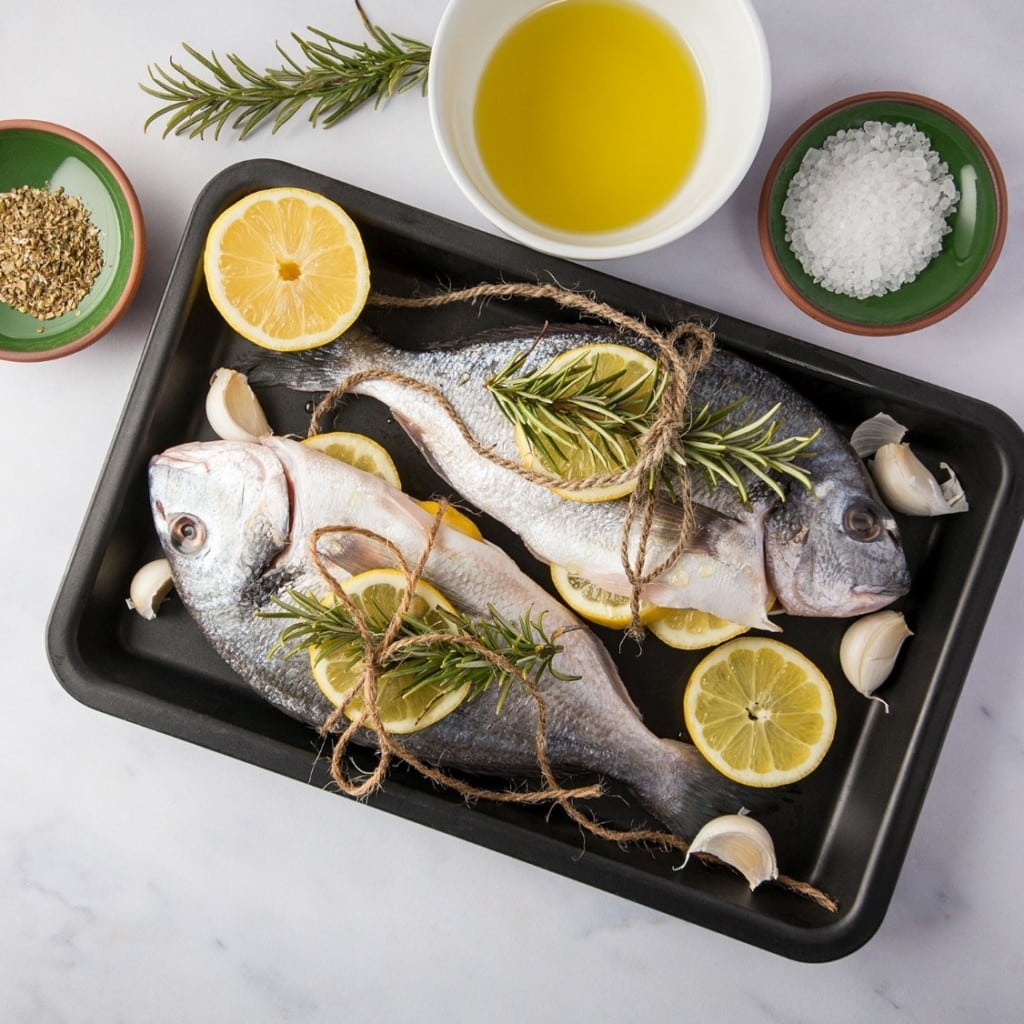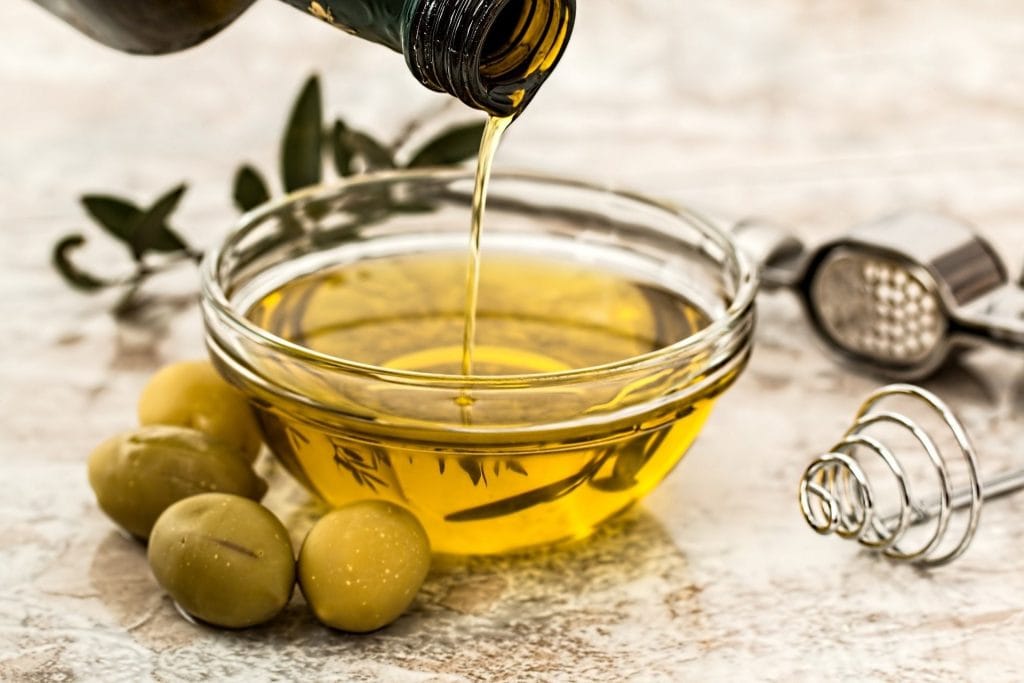Animal Protein Enhances Plant-Based Diet With Extra Virgin Olive Oil
Updated 22nd October 2024

Summary
- Extra Virgin Olive Oil is a perfect component of The Pesco-Mediterranean Diet which focuses on healthy fats and reduced meat consumption.
- The health benefits of the Pesco-Mediterranean Diet are enhanced with the use of a quality extra virgin olive oil like Morocco Gold.
- Swapping to a Pesco-Mediterranean Diet can reduce your risk of heart conditions and improve your cholesterol levels.
Contents
- The Pesco-Mediterranean Diet Is A Great Source Of Healthy Fats Including Extra Virgin Olive Oil
- The Pesco-Mediterranean Diet Is Good News For Extra Virgin Olive Oil Fans
- The Pesco-Mediterranean Diet Reduces Meat Consumption
- The Pesco-Mediterranean Diet Can Reduce Risk of Heart Conditions
- Savouring Health This Fall with the Pesco-Mediterranean Diet
- What Are The Pesco-Mediterranean Diet Health Benefits?
The Pesco-Mediterranean Diet Is A Great Source Of Healthy Fats Including Extra Virgin Olive Oil
Healthy fats are a central component of the pesco-Mediterranean diet, and extra virgin olive oil stands at the forefront. Unlike other fats, olive oil is rich in monounsaturated fats, which have been shown to lower bad cholesterol levels and reduce the risk of heart disease.
This diet also incorporates other sources of healthy fats, such as nuts and seeds. These ingredients not only add texture and flavour to meals but also provide essential nutrients like vitamin E and magnesium. Combined with the health benefits of olive oil, they create a nutrient-dense dietary pattern that supports overall health.
It’s easy to incorporate these fats into your daily meals. Use olive oil as a base for salad dressings, drizzle it over roasted vegetables, or mix it into hummus for a creamy texture. The possibilities are endless, and each meal becomes an opportunity to enjoy the healthful benefits of this diet.
This popular diet has been growing in popularity among health-conscious food lovers due to its tremendous benefits. It’s easy to incorporate into everyday life and contains many nutrient-rich foods, so it can help boost your overall wellness while providing great flavors too. The Pesco-Mediterranean diet takes a modern spin on traditional Mediterranean dishes by adding seafood as an additional staple food group – but what else makes this nutritional plan good for you and where does extra virgin olive oil fit in to the mix?
In this blog post, we’ll explore some of the key reasons why the Pesco-Mediterranean diet could be beneficial to include in your daily routine.
Switching to a plant-based diet is an increasingly popular choice in January and The Mediterranean Diet remains one of the key choices for a healthier lifestyle. If going completely meat free feels too extreme for you, the Pesco-Mediterranean Diet could be a great compromise. But what does it consist of and why might it be a good choice for your new year health resolutions?
The Pesco-Mediterranean Diet Is Good News For Extra Virgin Olive Oil Fans
One of the key principles of the pesco-Mediterranean diet is its reduced reliance on red and processed meats. Instead, it encourages the consumption of seafood and plant-based proteins, which are not only lower in saturated fats but also more sustainable.
This shift in protein sources offers numerous health benefits. Seafood provides high-quality protein and essential nutrients like iodine, selenium, and vitamin D. It also contains omega-3 fatty acids, which are beneficial for heart and brain health.
Reducing meat consumption can also lead to a lower intake of cholesterol and saturated fats, contributing to better cardiovascular health. Additionally, this approach aligns with sustainable eating practices, supporting both personal health and environmental well-being.
Fancy reducing your consumption of meat but don’t want to give up the health benefits of fish? The Pesco-Mediterranean Diet could be perfect for you! The team at Morocco Gold stumbled upon a great Newsweek summary of the benefits of a Pesco-Mediterranean Diet.
In the article, Soo Kim describes a Pesco-Mediterranean diet as;
“Essentially the Mediterranean diet combined with fish and seafood as your main animal food sources.”
According to The Mayo Clinic, The Mediterranean diet (made mostly of plant-based foods, with olive oil being the primary source of added fat) is based on the traditional cuisines of Greece, Italy and other countries bordering the Mediterranean Sea.
A typical Mediterranean diet pattern entails the following key aspects, according to the Mayo Clinic:
- Forms meals around vegetables, beans and whole grains.
- Eat fish at least twice a week.
- Use olive oil instead of butter when cooking.
- Serve fresh fruit for dessert.
The foundation of a Pesco-Mediterranean diet usually consists of vegetables, fruits, nuts, seeds, legumes, whole grains, as well as extra-virgin olive oil, fish, seafood and fermented dairy products.
What Are The Health Benefits?
Speaking to Newsweek, Katherine Zeratsky, a registered dietitian nutritionist (RDN) at the Mayo Clinic, said the Pesco-Mediterranean diet “follows the positive trend of the benefits of the traditional Mediterranean diet.”
And the first health benefit is great news for lovers of Extra Virgin Olive Oil!

Nuts and seeds also form a regular part of a Pesco-Mediterranean diet. Not only are they both an excellent source of healthy fats, they’re also rich in dietary fiber and provide a lean source of protein, Ehsani noted.
According to the 2020 JACC study, trial groups that consumed a Mediterranean diet supplemented with nuts or extra virgin olive oil had “statistically significant reductions of 29 percent for major adverse CVD [cardiovascular disease] events—myocardial infarction (MI), stroke, and death from these causes—and 42 percent for stroke,” compared with groups on a simple low-fat diet.
The Pesco-Mediterranean Reduces Meat Consumption
As explained by Newsweek, the diet reduces your meat consumption, including red meat and processed meats, which are both “pro-inflammatory” and raise “bad” LDL (low-density lipoprotein) cholesterol levels.
Zeratsky explained red and processed meats are a significant source of saturated fat. Processed meats tend to be high in sodium and other additives that may dilute nutritional quality.
“On the opposite spectrum, fish intake, often attributed to the healthier fats, have been shown to decrease coronary artery disease and sudden cardiac death and may also benefit other systems in our body such as brain health and lowering cancer risk,” Zeratsky noted.
Fatty fish (such as mackerel, herring, sardines, albacore tuna and salmon) are rich in omega-3 fatty acids, which are polyunsaturated fats that help fight inflammation in the body.
The Pesco-Mediterranean Can Reduce Risk of Heart Conditions
Zeratsky said consuming red and processed meat in greater quantity and/or frequency has been linked to a greater risk of cardiovascular disease and colon cancer.
A 2020 study in the peer-reviewed Journal of American College of Cardiology (JACC) noted that higher fish consumption (as long as it’s not fried fish) has been associated with a reduced risk of heart failure and a drop in the incidence of metabolic syndrome (a cluster of conditions occurring together, raising your risk of heart disease, stroke and type 2 diabetes).
Ehsani also warned that high consumption of meat can be harmful to brain health.
The Mayo Clinic says the omega-3 fatty acids found in fatty fish help reduce triglycerides (a type of fat in your blood) and blood clotting as well as the risk of stroke and heart failure.
In a 2018 Science Advisory, the American Heart Association recommended people to have one to two seafood meals per week to “reduce the risk of congestive heart failure, coronary heart disease, ischemic stroke and sudden cardiac death.”
Further health benefits of the Pesco-Mediterranean Diet, as listed in the Newsweek article include a reduction in ‘bad’ cholesterol, a good source of low-fat protein and Vitamin D. It is also an excellent choice for weight control as well as nutrient dense foods.
For the article in full please see here and for great tips on how extra virgin olive oil can contribute to a healthier lifestyle in 2024 come and visit us here.
Savouring Health This Fall with the Pesco-Mediterranean Diet
The crisp air of fall brings with it a renewed focus on health and delicious, comforting meals. For those who savour the rich taste of extra virgin olive oil, the pesco-Mediterranean diet offers the perfect blend of health benefits and culinary delight. This diet combines the principles of the Mediterranean diet with the protein-packed punch of seafood, making it a delightful choice for health-conscious foodies and olive oil enthusiasts alike.
What Are The Pesco-Mediterranean Diet Health Benefits?
Health enthusiasts have long sung the praises of the Mediterranean diet, and the Mediterranean variant only amplifies these benefits. It’s particularly renowned for its heart-healthy attributes. Thanks to its emphasis on plant-based foods and fish, this diet is a powerhouse of omega-3 fatty acids, which are known to support cardiovascular health.
Additionally, the pesco-Mediterranean diet is associated with improved brain function. Omega-3s, primarily found in fatty fish, play a crucial role in maintaining cognitive health. Pair this with the antioxidants found in extra virgin olive oil, and you have a recipe for brain-boosting meals.
Weight management is another advantage of this diet. The combination of plant-based foods, lean protein, and healthy fats promotes satiety, helping you feel fuller for longer. This can lead to a natural reduction in calorie intake without the need for strict dieting or counting.
